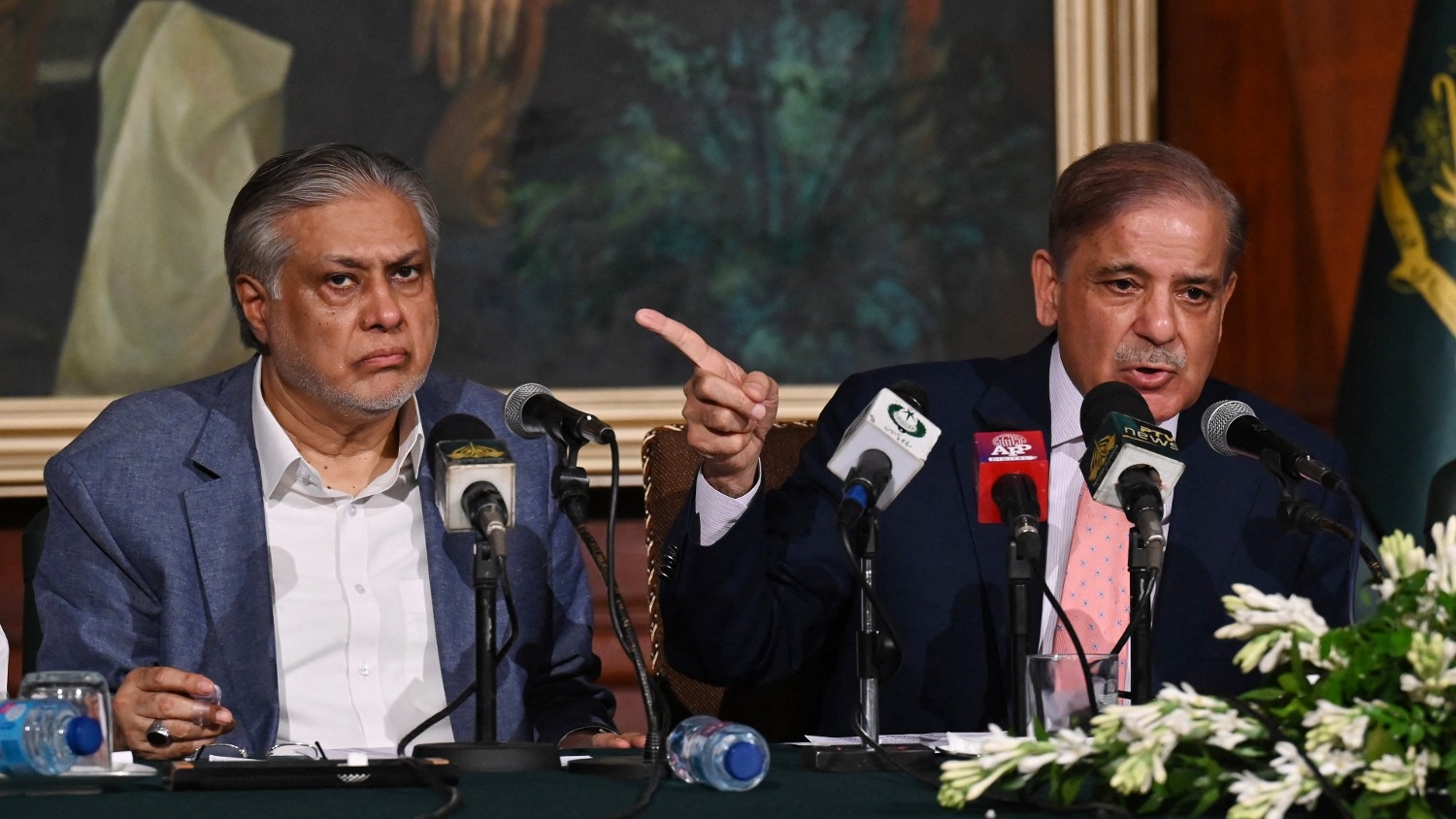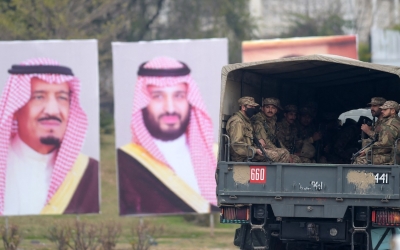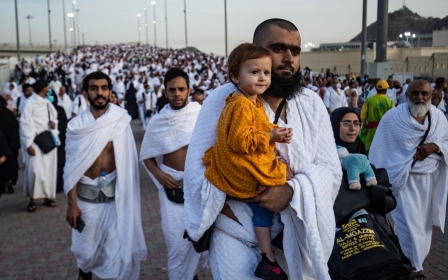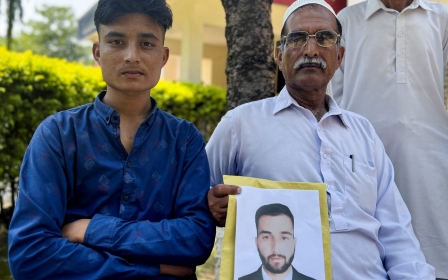Saudi Arabia, UAE send Pakistan billions of dollars as it secures IMF deal

Saudi Arabia and the United Arab Emirates have sent Pakistan a total of $3bn in financial support this week, as the International Monetary Fund (IMF) approved a standby agreement for a bailout of another $3bn.
Saudi Arabia had pledged $2bn in funds to Islamabad back in April but had held off delivering the money until after it was clear an IMF bailout was coming. On Tuesday, it delivered the funds to Pakistan's central bank.
Then, on Wednesday, the UAE provided another billion dollars to the South Asian country, boosting its foreign reserves which had been left with just barely enough to cover a month's worth of imports.
Pakistani Prime Minister Shehbaz Sharif tweeted his “deep gratitude to the leadership and brotherly people of the Kingdom of Saudi Arabia” for the funds.
On Wednesday, the IMF also announced the finalisation of its bailout package for Pakistan, which will immediately disburse about $1.2bn and then stagger the rest of the disbursements over a nine-month period.
New MEE newsletter: Jerusalem Dispatch
Sign up to get the latest insights and analysis on Israel-Palestine, alongside Turkey Unpacked and other MEE newsletters
Sherif said the IMF deal was a major step towards helping the government stabilise the economy.
This is the 13th IMF bailout Pakistan has received since the 1980s.
Pakistani Finance Minister Ishaq Dar has said he expects Pakistan’s foreign exchange reserves to rise to $15bn by the end of this month, saying that the country will be able to secure additional funding.
Pakistan has also received an upgraded credit rating from Fitch Ratings, and the bailout has brought some relief to investors in the country’s stocks and bonds.
Pakistan is constitutionally obligated to conduct a national election later this year, and the Sharif government will have to undertake more painful fiscal discipline measures in order to satisfy the IMF.
Pakistan is facing one of the worst financial crises in its history and is at risk of defaulting because of the massive external debts it owes. Prior to the bailout and the funds from the two Gulf countries, the country's foreign reserves were hovering around $4bn, an amount roughly equal to one month's worth of imports.
The currency has also dropped around 20 percent in value against the dollar this year.
The billions of dollars from Saudi Arabia also come months after Riyadh said it would no longer provide any further bailouts or interest-free loans to the country, leaving Pakistan in shock.
“We used to give direct grants and deposits without strings attached and we are changing that. We are working with multilateral institutions to actually say we need to see reforms,” Saudi Finance Minister Mohammed al-Jadaan said at the World Economic Forum in Davos in January.
Middle East Eye delivers independent and unrivalled coverage and analysis of the Middle East, North Africa and beyond. To learn more about republishing this content and the associated fees, please fill out this form. More about MEE can be found here.





